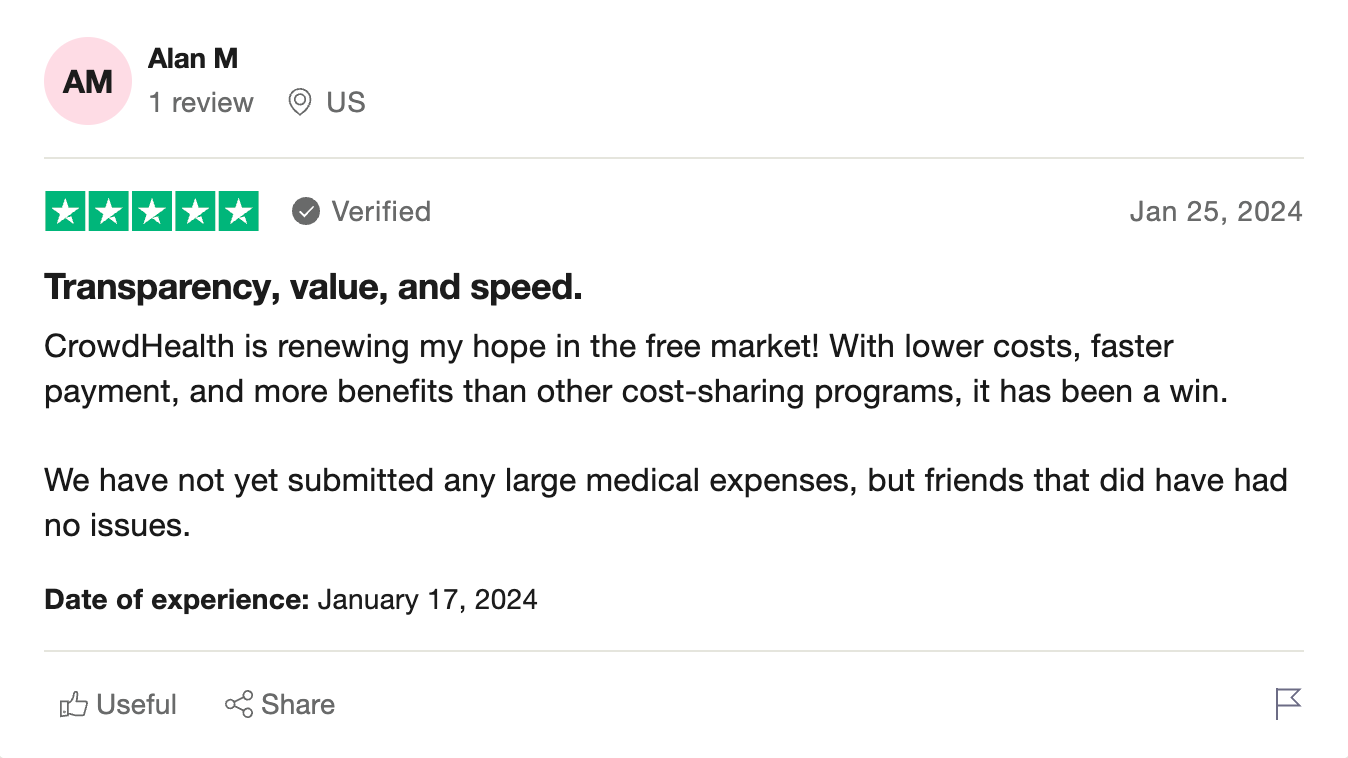

Short-term health insurance often comes across as a financially savvy choice for those in between jobs or waiting for other health coverage to start. At first glance, the lower premiums can seem like a breath of fresh air, especially when compared to the high costs of standard health insurance plans. However, the initial savings may mask a reality filled with high out-of-pocket costs, limited coverage, and other significant drawbacks.
This article delves deep into the pitfalls of short-term health insurance and contrasts it with an innovative healthcare solution, the CrowdHealth coverage gap, that might just be the alternative you're looking for.
The Pitfalls of Short-Term Health Insurance
Short-term health insurance is designed as a temporary safety net, but it's crucial to look beyond the surface. Here are the reasons why this type of insurance might not be the safety net you think it is.
Limited Coverage: A Major Concern
One of the most significant drawbacks of short-term health insurance is its limited coverage. Essential healthcare needs like pre-existing conditions, maternity care, mental health services, and prescription drugs are often not covered adequately, if at all. This coverage gap can lead to substantial out-of-pocket expenses for basic healthcare, negating the initial savings from lower premiums.
High Out-of-Pocket Costs: The Hidden Truth
While the allure of lower premiums is strong, short-term plans often come with high deductibles and copays. This means that the overall cost of healthcare can quickly add up, especially if you require significant medical care during the policy period. It's a classic case of looking beyond the initial price tag to understand the true cost of what you're buying.
Policy Limitations and Financial Risks
Short-term health insurance plans are notorious for their policy limitations, including dollar limits on coverage. Once these limits are reached, you're on the hook for all subsequent costs, which can be financially crippling in the event of a serious illness or accident.
Renewal and Coverage Gaps: A Precarious Position
The temporary nature of short-term policies means they're not guaranteed to be renewable. If you develop a health condition, obtaining coverage again once your policy expires could be challenging, leaving you in a precarious position.
CrowdHealth: A Crowdfunded Healthcare Solution
In contrast to the traditional insurance model, CrowdHealth offers a novel approach to managing healthcare expenses. It's a system that's not insurance but operates on a principle similar to crowdfunding, where individuals contribute to a communal fund for healthcare needs.

How CrowdHealth Works: A New Approach
CrowdHealth takes a proactive stance by organizing the collection of funds before health events occur. This ensures that funds are available when needed, providing financial security for healthcare costs. Moreover, by funding healthcare providers directly, CrowdHealth reduces administrative costs and complications, making the healthcare experience smoother for both providers and patients.
Community Support and Transparency
Participating in CrowdHealth means joining a community that supports each other's healthcare needs, fostering a sense of solidarity and mutual assistance. Additionally, members enjoy more transparency regarding where their money goes and how it's used, offering control and participation in the healthcare process that traditional insurance models lack.
Conclusion
While short-term health insurance might seem like an economical choice for bridging gaps in coverage, its limitations and potential for high out-of-pocket costs can make it a less than ideal option. Conversely, CrowdHealth presents a potentially more sustainable approach to managing healthcare expenses, emphasizing community support, transparency, and direct funding of healthcare needs. As with any healthcare decision, it's crucial to carefully consider your health needs, financial situation, and the specific terms of any plan or program before making a choice.
FAQs
What exactly does short-term health insurance cover?
Short-term health insurance typically offers limited coverage, which may not include pre-existing conditions, maternity care, mental health services, or prescription drugs.
How long can I stay on a short-term health insurance plan?
The duration of short-term health insurance plans varies, but they are designed to be temporary, often lasting a few months up to a year, with some states allowing renewals.
Are there any alternatives to short-term health insurance?
Yes, alternatives include marketplace insurance, medicaid (depending on your income and state), and innovative solutions like CrowdHealth, which offer different benefits and coverage options.
Can I switch from short-term health insurance to a standard health insurance plan?
Yes, you can switch, but it's essential to time it correctly to avoid gaps in coverage, especially during open enrollment periods for standard health insurance plans.
What happens if I exceed my short-term health insurance plan's coverage limits?
Once you exceed the coverage limits of your short-term health insurance plan, you are responsible for all subsequent healthcare costs, which can be financially devastating.
Is CrowdHealth considered insurance?
No, CrowdHealth is not insurance. It operates on a crowdfunding principle, where members contribute to a communal fund used for healthcare needs, offering an alternative to traditional insurance models.